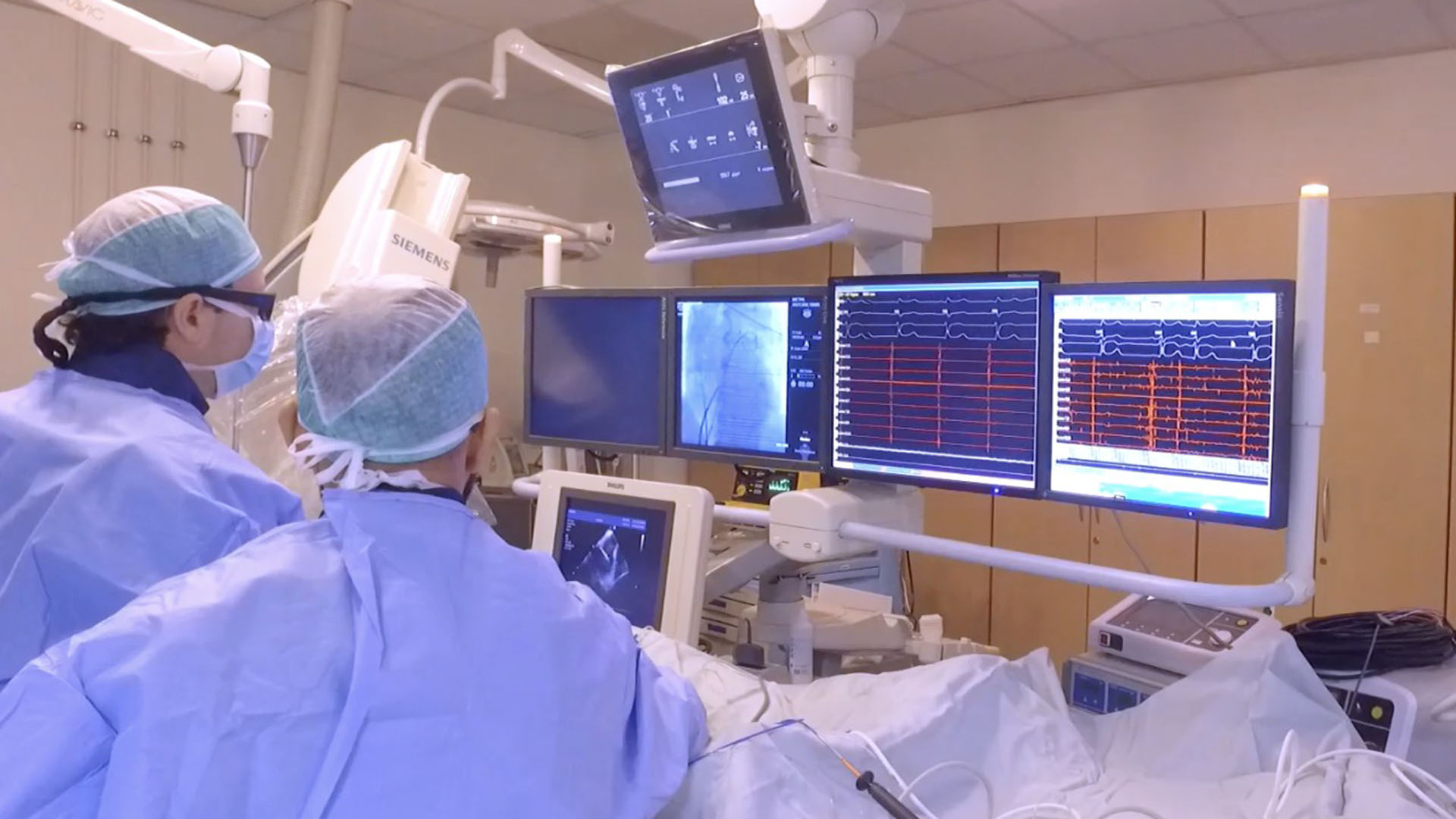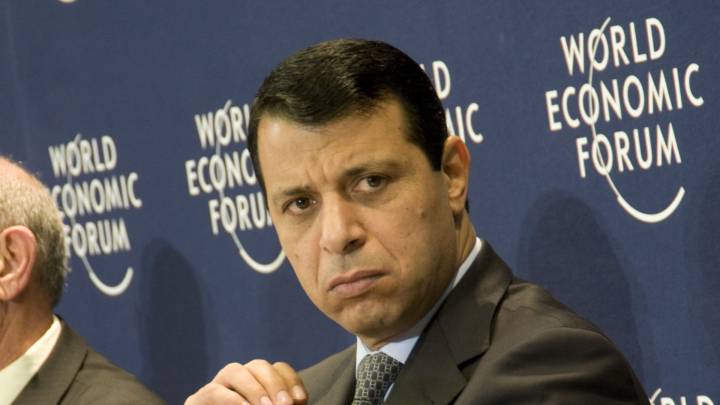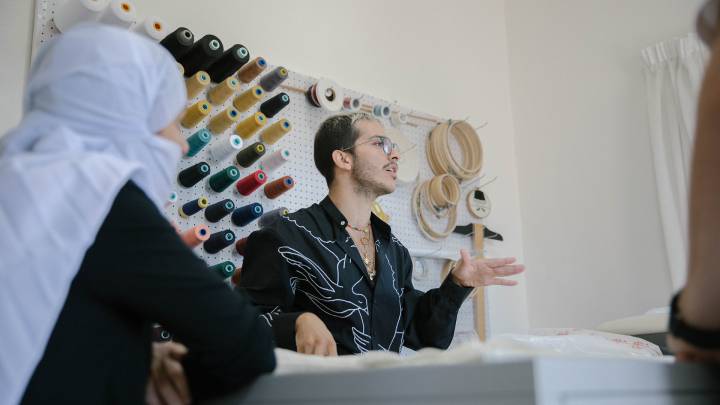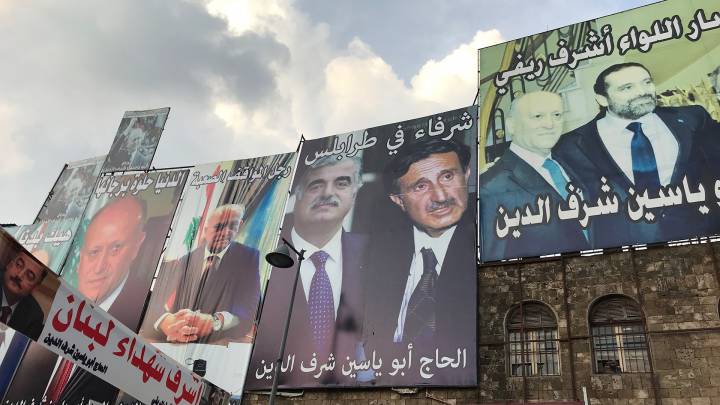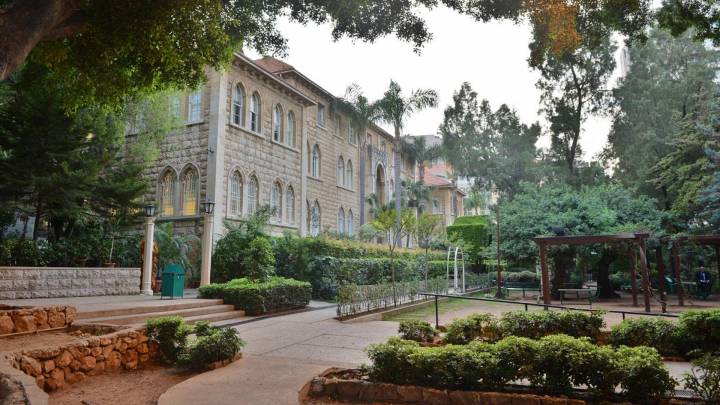Hospitals in Lebanon are sounding the alarm. As liquidity dries up and imports decrease, supplies are running out. Patients and medical staff are paying the price.
As Lebanon’s currency crisis rages on, an average patient requiring prosthetic placement surgery will likely face an uphill battle. Hospitals and insurance companies will inevitably squabble over the cost of the operation, leaving the patient with a stark choice: either pay the difference in cash or postpone the procedure.
It is a choice that epitomises the unprecedented difficulties the country’s healthcare providers are facing. Still reeling from the Beirut port explosion in August which partially destroyed three major hospitals, they are grappling with a renewed Covid-19 outbreak. All the while unprecedented economic hardship is depleting hospital resources, threatening the day-to-day running of Lebanon’s once reputable healthcare industry.
Suleiman Haroun, the head of the Syndicate of Lebanese Hospitals, saw this crisis looming as far back as 2019. Now he is warning that 15 hospitals are on the brink of closure. A liquidity shortage, depleted human resources, and growing economic anxiety compounded by the strains of dealing with the current global pandemic are all contributing factors of a bleak prognosis for Lebanon’s healthcare system. Haroun questions where this is all headed: “How long hospitals can last if these problems aren’t solved?”
Supplies rationed, operations delayed
Postponing operations has become the only option for a growing number of patients, not just those in need of prosthetic limbs. For weeks, in an attempt to preserve much-need medical supplies, hospitals of all sizes have begun to reschedule non-essential surgeries whenever possible.
“I’m reducing the number of operations to save medical equipment,” says Walid Bejjani, a doctor who runs clinics at three major hospitals across Lebanon, as well as his private practice: “I haven’t noticed a shortage yet, but we’re taking precautions.”
Most hospitals are well-supplied for the coming year, yet many are still cancelling operations to preserve provisions amid rising costs of imported medical goods. This approach has led to patients requiring metal implants for broken bones or artificial hip replacements to pay cash to cover the extra costs. “Almost half of all surgical operations in private hospitals are being delayed,” Haroun says. “But we have struck a deal with medical suppliers to offer life-saving operations on time.”
Disinfectants and personal protective equipment are also in worryingly short supply. The shortage is due to the rationing measures imposed by hospital management rather than to a lack of stock. A nursing assistant at the American University of Beirut Medical Center (AUBMC), explains that the new restrictions on gloves, masks, and wet wipes that staff can use are a challenge: “There’s no consensus at all on standards of health and safety, and there’s no shortage in supplies, but now they ask us to specify the exact number of items we need.”
The hospital, the trader, and the bank
The acute lack of foreign currency lies at the heart of Lebanon’s healthcare crisis. As local banks have retained customer’s foreign deposits, dollar liquidity has dried up and suppliers have struggled to import medical items. The Central Bank has responded by subsidising medical supplies as well as other imported essentials such as wheat, fuel, and medicine. A new decree from the Central Bank means that suppliers must pay for medical imports in cash whereas before they could pay at a lower exchange rate.
“Hospitals don’t pay us in cash,” says Salma Assi, the head of the Syndicate of Importers of Medical Equipment and Devices, “so we started asking them to do so. It’s the only way.”
A coalition of some the country’s most prominent hospitals, including the American University of Beirut Medical Center, the Lebanese American University, Saint Georges, Hotel Dieu, Maounat, and Mount Lebanon University Hospitals, has responded to this pressure from suppliers by releasing a statement that announced that they would be halting surgical and medical procedures until the matter is resolved.
Joseph Otayek, the director of AUBMC, said that the hospital was still offering all its services without any reduction in quality of care: “We don’t have a shortage of materials yet, but we’ll definitely be facing this problem.”
Experts believe that the Central Bank’s decision was intended to withdraw local currency from the market to stabilise volatile exchange rates. The Syndicate of Importers has condemned the move: “The Central Bank won’t listen to us and we’ve been denied meetings,” Assi tells zenith. “If they don’t retract these decisions, we’re headed for a disaster.” The Central Bank has not responded to this criticism.
The impact of public health
The discrepancy between the official and the black-market exchange rates is increasing the burden on patients and medical personnel. The Lebanese pound is still officially pegged to the US dollar at 1,500 Lebanese pounds, but it has soared to 8,000 on the black market. This mismatch is causing a dramatic disbalance of expenses and revenues for hospitals.
“A bed for a night at the medical centre is charged at 90,000 Lebanese pounds,” Otayek tells zenith: “At the official rate it’s worth $60. At today’s rate, this is worth $13. The new fee barely covers electricity and food, let alone maintenance and other expenses.”
A doctor gets paid $150 to remove a patient’s tonsils, but this sum has decreased in market value to $28. Some doctors have tried to raise their bills at private clinics, drawing complaints from patients.
Bejjani says that almost every prospective patients asks about price before setting foot inside his clinic, with some even haggling over consultation fee: “In my 27 years of practice, I’ve never seen patients as desperate as they are now, not even during the war.”
The government covers the cost of 70% of Lebanese citizens’ treatment. But its failure to pay the roughly 2.5 trillion Lebanese pounds that it owes private hospitals is compounding liquidity problems. Even patients with private insurance are feeling the burden, as hospitals and private insurance firms cut new deals at higher exchange rates, forcing insurance companies to charge customers higher fees.
For Sarah Abdul Nabi, a resident doctor at AUBMC, the effect of this crisis amid the coronavirus pandemic on the well-being of both patients and medical staff is clear: “People are trying to manage themselves at home before presenting themselves to the hospital, probably due to different factors: insurance costs, fears of contracting the virus, and the financial burden. We are working overtime, not only for patients to get the right treatment, but also to find ways for them to afford that treatment.”
The Central Bank’s decision to subsidise supplies does not extend to spare parts for medical equipment, meaning that hospitals such as AUBMC must cover dollar expenditures in Lebanese pounds, calculated at an inflated exchange rate. For Otayek the consequences of this are clear: “We’re not investing in new machines. Radiology tubes, for example, are not subsidised. One costs in excess of $50,000, which we either pay for in fresh dollars or in Lebanese pounds at the black-market rate.”
A shortage of human resources
The depreciation in their salaries and the pressures of coping with the pandemic has left many doctors considering a future outside of Lebanon. Most of the hospitals that spoke to zenith reported that many of their staff from nursing assistants to senior consultants were submitting their resignations to accept opportunities abroad.
Elie Khoury, the medical director of the Bhannes Medical Center in Mount Lebanon, has seen five of the centre’s hundred doctors leave to the USA and France: “We’re in survival mode; putting personal interests aside and taking these risks. The first year has passed, and we’re doing it for a second year. Beyond that, we can’t be sure.”
And the actions of some hospital could see the situation worsen for those medical professionals who cannot leave the country. While AUBMC has 450,000 Lebanese pounds to employees’ payroll as of September as an “advance payment to cover for the cost of living”, the administration has recently discharged almost 600 of its employees in July 2020. The move caused a nationwide outcry.
“The decision was made to stanch the bleeding and cut the huge losses, knowing that these people are part of our community,” Otayek tells zenith. “We are creating a medico-social fund to help them cover medical fees.” He says the medical centre is not intending to make further redundancies.
“It’s not just the hospitals”
Mohammad Zbeeb, a financial journalist working for Al-Akbar newspaper, considers depleting dollar reserves at the Central Bank to be the crisis’ root cause: “Different financial actors are trying to get a hold of the remaining dollars. It’s not just the importers and the hospitals; it’s also the wheat importers, the bakeries, the gas stations, the fuel importers, the trash collectors.”
The caretaker government could enact emergency measures, but Zbeeb emphasises that any solution to the crisis will fall short if it does not include structural changes: “The only way out of this catastrophe are changes to the deep-rooted failures of the economic system.”
Jonathan Dagher is a journalist and producer at the Lebanese independent online media platform Megaphone News. In summer 2019 he participated in RSF Germany’s Berlin Scholarship Programme.
The content published on the Lebanon Chronicles channel is supported by the Konrad-Adenauer-Stiftung (KAS). The views expressed in these articles are those of the respective authors and do not necessarily reflect those of the KAS.

